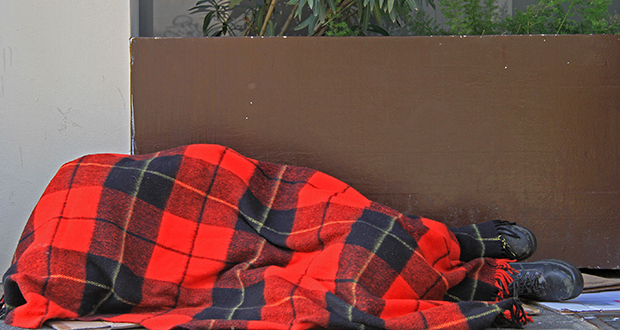A University of Queensland partnership between public and not-for-profit agencies has been given the green light to deploy a strategy that hopes to end the scourge of homelessness in Brisbane.
However, as two UQ researchers in charge of the project 'Responding to Rough Sleeping in Brisbane' point out, only an increase in the supply of social housing in the city will guarantee the plan reaches its goal of having no-one sleeping rough on the street.
Dr Andrew Clarke from UQ’s School of Social Science said Micah Projects – a local not-for profit group that works to improve various facets of homeless people’s lives – “worked with police and other public agencies to adopt a ‘housing-first’ approach to rough sleeping in Brisbane”.
“The approach aimed to provide unconditional access to stable, long-term housing for people sleeping rough, coupled with tailored support to address their ongoing welfare needs,” Clarke said.
“Agencies like police routinely encounter people sleeping rough when patrolling public spaces.
“The Micah Projects partnership – organised through the Street to Home program – transforms these encounters into an opportunity to refer people for housing support.
“The organisation then assists them to access stable housing in the social housing sector.”
Research led by Clarke and fellow UQ researcher Associate Professor Cameron Parsell concluded that people housed through the ‘housing-first’ initiative experienced positive changes to their lives.
“This is consistent with international research on the effectiveness of a ‘housing-first’ strategy,” Clarke said.
“However, we also found the undersupply and long wait times for social housing meant that many people remained on the street for extended periods, despite receiving support.
“Due to decades of underinvestment in social housing, as of July 2019 even people with priority status had spent around seven months on the social housing waitlist.”
Clarke’s research findings shine a light on what would be required to eliminate rough sleeping in Brisbane.
“A coordinated and housing-focused response has the capacity to end homelessness for some of the most vulnerable people who are sleeping rough on the street,” Clarke said.
The rub, however, is that rough sleeping will continue in Brisbane (and other major cities) due to a severe shortage of social and affordable housing. The researchers believe even the most dedicated and well organised local agencies “cannot adequately respond to the scale of the problem”.
As the study was undertaken before the COVID-19 pandemic, the researchers believe the problem of rough sleeping has taken on a “renewed focus”.
“The pandemic revealed just how vulnerable people sleeping rough are, but it also revealed that we can do something about it, as we saw people sleeping rough moved into hotels and student accommodation to help them social distance,” Clarke said.
“Now is therefore the perfect time for society to take the steps required to permanently end rough sleeping in Australia by investing in affordable housing on a large scale.”
In April, the ABC reported more than 280 domestic and international students moved out of a Brisbane apartment building and relocated to another nearby apartment block. Individuals who were formerly homeless then occupied the rooms, providing a safe shelter for the homeless and a purpose for the building.
Do you have an idea for a story?Email [email protected]
 Campus Review The latest in higher education news
Campus Review The latest in higher education news

